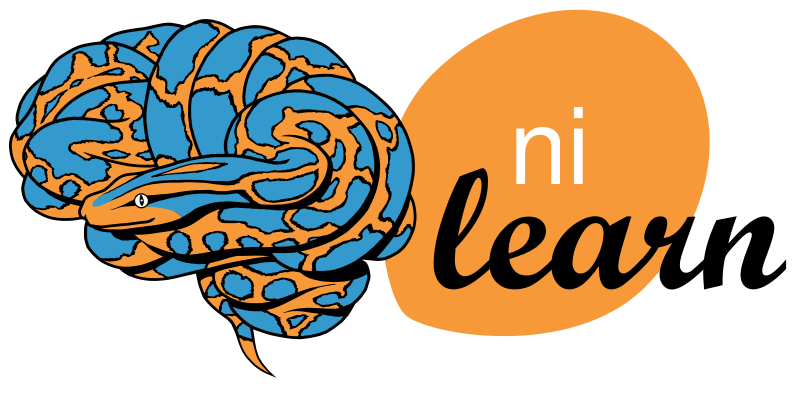Note
This page is a reference documentation. It only explains the class signature, and not how to use it. Please refer to the user guide for the big picture.
nilearn.input_data.NiftiLabelsMasker¶
-
class
nilearn.input_data.NiftiLabelsMasker(labels_img, background_label=0, mask_img=None, smoothing_fwhm=None, standardize=False, detrend=False, low_pass=None, high_pass=None, t_r=None, resampling_target='data', memory=Memory(cachedir=None), memory_level=1, verbose=0)¶ Class for masking of Niimg-like objects.
NiftiLabelsMasker is useful when data from non-overlapping volumes should be extracted (contrarily to NiftiMapsMasker). Use case: Summarize brain signals from clusters that were obtained by prior K-means or Ward clustering.
Parameters: labels_img: Niimg-like object :
See http://nilearn.github.io/building_blocks/manipulating_mr_images.html#niimg. Region definitions, as one image of labels.
background_label: number, optional :
Label used in labels_img to represent background.
mask_img: Niimg-like object, optional :
See http://nilearn.github.io/building_blocks/manipulating_mr_images.html#niimg. Mask to apply to regions before extracting signals.
smoothing_fwhm: float, optional :
If smoothing_fwhm is not None, it gives the full-width half maximum in millimeters of the spatial smoothing to apply to the signal.
standardize: boolean, optional :
If standardize is True, the time-series are centered and normed: their mean is put to 0 and their variance to 1 in the time dimension.
detrend: boolean, optional :
This parameter is passed to signal.clean. Please see the related documentation for details
low_pass: False or float, optional :
This parameter is passed to signal.clean. Please see the related documentation for details
high_pass: False or float, optional :
This parameter is passed to signal.clean. Please see the related documentation for details
t_r: float, optional :
This parameter is passed to signal.clean. Please see the related documentation for details
resampling_target: {“data”, “labels”, None}, optional. :
Gives which image gives the final shape/size. For example, if resampling_target is “data”, the atlas is resampled to the shape of the data if needed. If it is “labels” then mask_img and images provided to fit() are resampled to the shape and affine of maps_img. “None” means no resampling: if shapes and affines do not match, a ValueError is raised. Defaults to “data”.
memory: joblib.Memory or str, optional :
Used to cache the region extraction process. By default, no caching is done. If a string is given, it is the path to the caching directory.
memory_level: int, optional :
Aggressiveness of memory caching. The higher the number, the higher the number of functions that will be cached. Zero means no caching.
verbose: integer, optional :
Indicate the level of verbosity. By default, nothing is printed
See also
Methods
-
__init__(labels_img, background_label=0, mask_img=None, smoothing_fwhm=None, standardize=False, detrend=False, low_pass=None, high_pass=None, t_r=None, resampling_target='data', memory=Memory(cachedir=None), memory_level=1, verbose=0)¶
-
fit(X=None, y=None)¶ Prepare signal extraction from regions.
All parameters are unused, they are for scikit-learn compatibility.
-
get_params(deep=True)¶ Get parameters for this estimator.
Parameters: deep: boolean, optional :
If True, will return the parameters for this estimator and contained subobjects that are estimators.
Returns: params : mapping of string to any
Parameter names mapped to their values.
-
inverse_transform(signals)¶ Compute voxel signals from region signals
Any mask given at initialization is taken into account.
Parameters: signals (2D numpy.ndarray) :
Signal for each region. shape: (number of scans, number of regions)
Returns: voxel_signals (Nifti1Image) :
Signal for each voxel shape: (number of scans, number of voxels)
-
set_params(**params)¶ Set the parameters of this estimator.
The method works on simple estimators as well as on nested objects (such as pipelines). The former have parameters of the form
<component>__<parameter>so that it’s possible to update each component of a nested object.Returns: self :
-
transform(imgs, confounds=None)¶ Extract signals from images.
Parameters: imgs: Niimg-like object :
See http://nilearn.github.io/building_blocks/manipulating_mr_images.html#niimg. Images to process. It must boil down to a 4D image with scans number as last dimension.
confounds: array-like, optional :
This parameter is passed to signal.clean. Please see the related documentation for details. shape: (number of scans, number of confounds)
Returns: signals: 2D numpy.ndarray :
Signal for each region. shape: (number of scans, number of regions)
-
